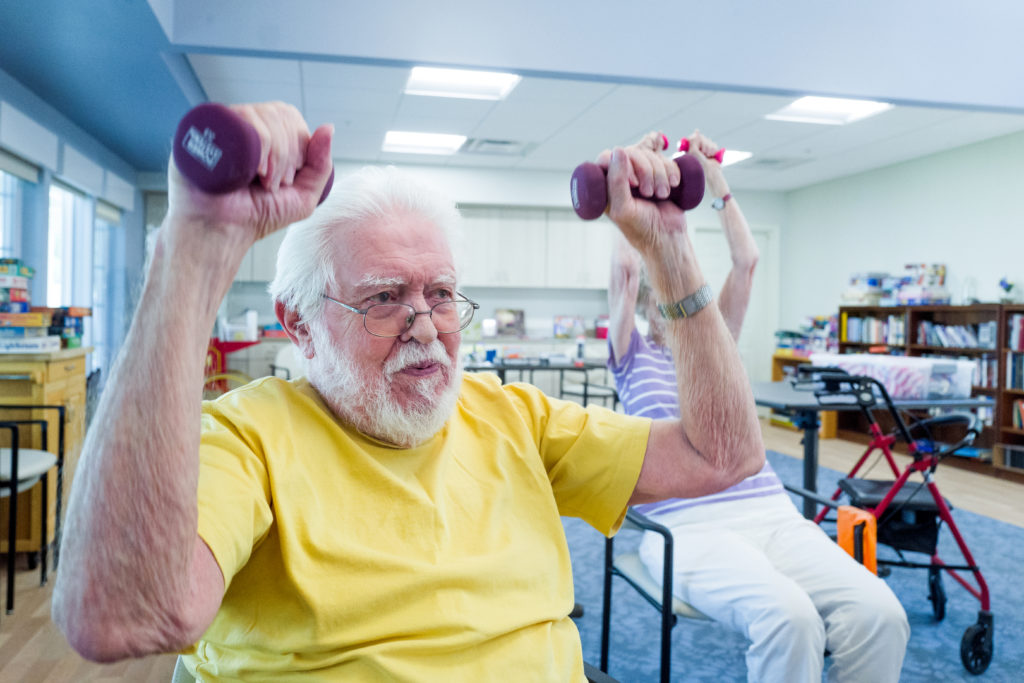November 22, 2022 —Kendal at Lexington has joined a comprehensive, nationwide effort to implement best practices to support a resident’s ability to safely stay standing or seated without risk of falling. Kendal at Lexington’s five-star reputation and history of high compliance qualified the community for inclusion in the program.
A National Endeavor
Invited early this year to join an inaugural Peace Church Falls Collaborative, Kendal at Lexington is one of 19 Peace Church risk member organizations in states across the country participating in this multi-faceted initiative to decrease falls and fall-related monetary claims.
In the coming months, KaLex will focus on long-term care, and skilled nursing in the Borden Health Center, where an initial risk assessment survey revealed most falls occurred on specific days and times of the week. According to KaLex director of quality and compliance Mandi McComas, emphasis will expand to assisted and independent living in the coming months.
“An Amazing Program”
“This is an amazing program,” enthused Mandi of the data-driven endeavor that brings together administrators, nursing teams, mentors, activities directors, therapists, and others on the Kendal staff in an all-hands-on-deck effort to ensure that fall incidents are declining.
We have already seen improvements as we evaluate and implement new processes. Our goal is to reduce the number of falls in skilled nursing by 50 percent by May of 2023,” she said
Members of the collaborative are provided support, guidance and tools to help them analyze falls data, measure key indicators, and identify processes that need to be improved.
A Coordinated Effort
“The interdisciplinary team approach is key; it takes a coordinated effort to be successful,” said Mandi.
In a scheduled timeline that includes webinars, round table discussions, and other events into 2023, the falls prevention collaborative prioritizes ongoing staff education, competency assessment, a performance improvement plan to recognize and mitigate high fall times, and routine practical measures to encourage residents’ safety and well-being.
Such measures at KaLex include staff huddles at shift changes when care providers share deviations in residents’ baselines (“If you see something, say something,” said Mandi), more frequent rounds to check on residents, caring partners to walk alongside them, regular safety reminders, increased resident outings and opportunities with trained staff, and activities that help those in memory care remember where implements like walkers and canes are located.

Exercising Caution
The most important aspect of all falls prevention wisdom is an awareness of the environment.
“We always have to be cognizant of things we could trip over,” warned Mandi, a registered nurse, former Rockbridge County emergency medical services provider, and public health manager.
As she is navigating her brand-new role at KaLex, which began in late September, Mandi is getting certified as a falls prevention specialist (“I could give advice all day on how not to fall!”) and is completing her doctorate program to become a nurse practitioner in gerontology and end-of-life care.
“I spent the first 30 years of my career doing reactive care. I want to spend the next 30 doing proactive care.”
Working with a team focused on preventing falls, she is well on her way.